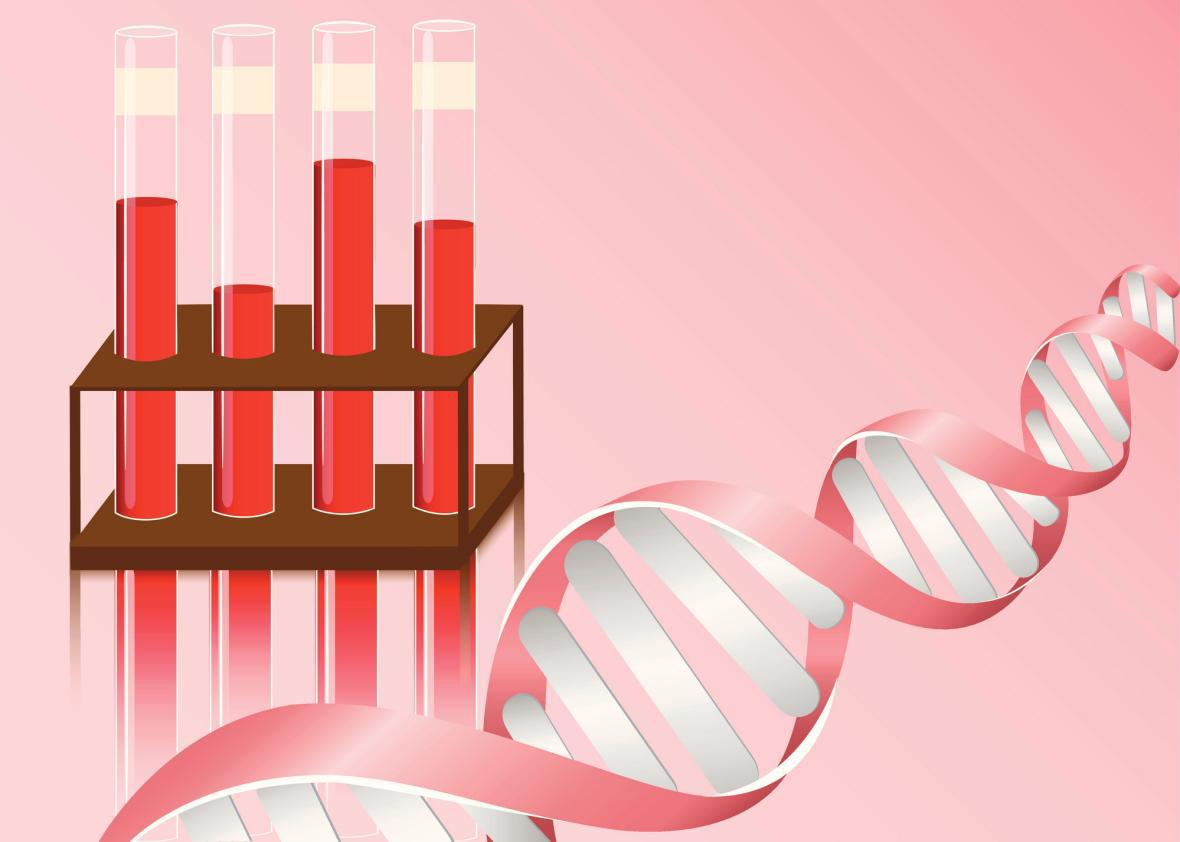Scott Brown, the former Massachusetts senator who lost to Elizabeth Warren in the 2012 election, has decided to dredge up old accusations that may have ultimately cost him that race.
“As you know, she’s not Native American,” Brown told reporters this week. “She’s not 1/32 Cherokee.” He then called on Harvard University, where Warren was a law professor, to release records that allegedly indicate Warren benefited from affirmative action (there’s no reason to believe this is true), before suggesting that “she can take a DNA test” if she wants to prove her roots.
But here’s the thing: DNA testing cannot definitively prove whether a person is Cherokee. Or a member of any community, at least not reliably. To assume it can is to assume that there’s something inherently different in the genetic makeup of tribal members and that this thing is universal within that community. That’s not true.
Our genes dictate certain things about us—there’s a gene that programs the color of your eyes, for example. But ethnicity is not a trait derived from a single gene, because ethnicity is mostly our perception of a collection of traits, rather than a trait itself. So a genetic test that looks at our genes and comes back with an assessment of our ethnic roots isn’t honing in on a specific gene and reading what it says because there’s no such gene to read. Instead, the test is comparing snippets of our DNA to snippets of DNA of people of known origin and looking for similarities.
The problem is that DNA snippets, or markers, are inconsistent. Sometimes they are passed on and sometimes they are not, and whether they are or aren’t is random. Sure, a large percentage of Native Americans may share certain genetic markers. But many Native Americans may lack the same marker, and many non–Native Americans may carry it by coincidence.
So when a DNA test comes back saying you are 28 percent Finnish, all it’s really saying is that of the DNA analyzed (most companies don’t analyze all of your DNA), 28 percent of it was most similar to that of a completely Finnish person. In the end, these comparisons are a fun but ultimately unreliable way to think about the possibilities of whom your ancestors might have been, rather than definitive proof of your ethnic background.
So will all of this get better as we get more sophisticated genetic tests? Or could better genetic tests help amass more data that would improve the precision of these tests? Probably not—in fact, it might get more complicated.
“Scientists who don’t know better claim that when more Natives are sampled they’ll have better data bases, i.e. more Native markers,” said Kim TallBear, professor of Native studies at the University of Alberta in a 47-tweet takedown of Brown’s remarks about Warren. “[Geneticists] think that with more markers, and greater historical-genetic resolution they’ll be able to pinpoint tribe-specific markers.” But this does not account for the fact that people are continuously moving and reproducing with other, diverse people. They mix their genetic code with other communities (as they always have, going back to the dawn of our species). If anything our DNA is getting more muddled, not more clear.
Still, the past 10 years have seen the idea of DNA testing go from prohibitively expensive to a $99 ready-to-mail cotton swab. Ancestry.com plasters its home page with pie charts that promise to give you a “sense of identity“ with decimal-point precision. Global sales of these kits are expected to reach $60 billion in the next four years.
That skyrocketing estimate is due in part to the popularity of PBS’s show Finding Your Roots, which pairs DNA analysis with paper trail chasing to reconstruct guests’ genealogy. The idea of tracing one’s roots resonates particularly with black Americans, as NPR’s All Things Considered highlighted earlier this year, because this group is particularly lacking in genealogical information due to the forced migration of slavery. “Many people talk to me about living their whole lives wanting to know who they were, in the sense of who they were before the slave trade,” Columbia sociology professor Alondra Nelson said to NPR. Unfortunately, the problems posed by the tests apply just as much to this community as they do to Warren.
Another issue is limited and inconsistent data. Ancestry.com, for example, divides the world up into 26 genetic regions and uses just 115 samples to create the representative of each region—a very small sample size. And different companies place different weight on these samples, which come from burial grounds, modern isolated communities, and academically published data, like the Human Genome Diversity Project. For the consumer, this means if you don’t like your heritage results, try a different company. You’ll get a completely different breakdown.
Whether there’s any harm in people basing their identity on faulty reasoning is unclear, but the success of these commercial endeavors proves that at the very least, consumers find it kind of fun. Genetic testing is basically just a low-cost way to get a blurry picture of whom your ancestors might have been related to.
Just don’t take that picture too seriously.
This article is part of Future Tense, a collaboration among Arizona State University, New America, and Slate. Future Tense explores the ways emerging technologies affect society, policy, and culture. To read more, follow us on Twitter and sign up for our weekly newsletter.
